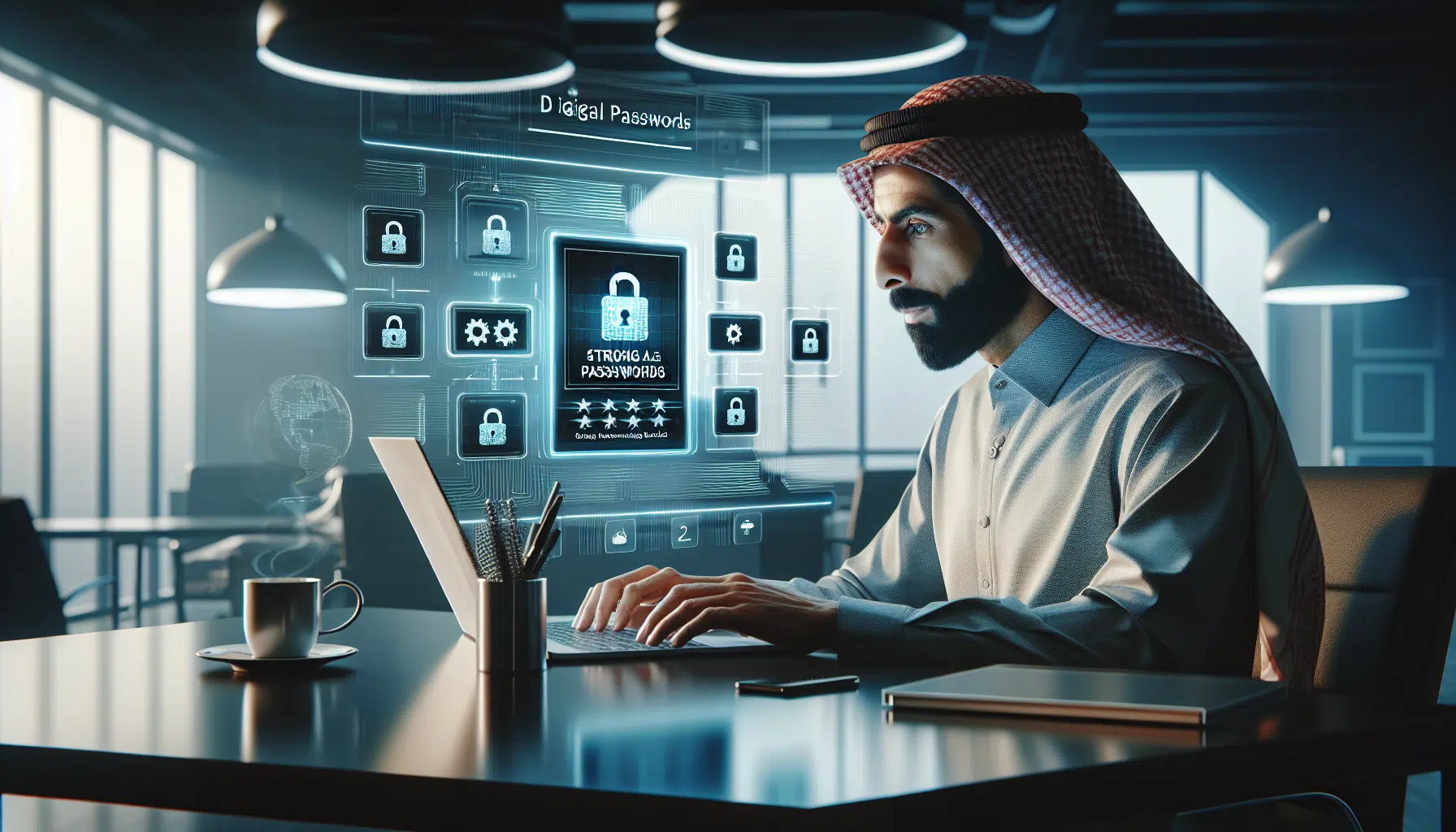Advertisements
Did you know that a strong password can be your first line of defense against malware? In today's article, we'll explore how to protect your privacy and digital security by making your passwords your best ally. As the digital world expands, so do the threats that compromise our personal information. Therefore, it's crucial to understand how to create and manage strong passwords.
First, we'll discuss the basics of strong passwords and why they're essential in the fight against cybercrime. We'll also cover best practices for creating unique, hard-to-crack passwords, as well as the importance of using them for all your online accounts.
Advertisements
Next, we'll delve into the tools and techniques available to efficiently manage your passwords. From password managers to two-factor authentication, you'll learn how these tools can simplify your digital life while increasing your security.
In addition, we'll analyze common mistakes many people make when managing their passwords and how to avoid them. Last but not least, we'll provide you with practical, easy-to-implement tips to stay one step ahead of cybercriminals.
Don't let malware take over your data. Join us for this complete guide to turning your passwords into your best defense and securing your digital presence! 🔒
Advertisements
The power of strong passwords: your first line of defense
In an increasingly digital world, protecting our privacy and security is more crucial than ever. Passwords, although often underestimated, are the first barrier cybercriminals must overcome to access our personal and professional information. Therefore, it's vital to understand how to create and manage strong passwords to protect ourselves from malware and other cyber threats.
Advantages of good password management
- Prevent identity theft: A strong password makes it difficult for unauthorized access to your accounts, protecting your identity and personal data.
- Malware protection: Malware often seeks weak passwords to infiltrate your devices. Strong, unique passwords can thwart these attempts.
- Peace of mind: Knowing your accounts are secure allows you to browse and work online with greater confidence.
- Better management of multiple accounts: Using a password manager makes it easy to manage multiple accounts without compromising security.
How to create strong and effective passwords
Creating strong passwords isn't as complicated as it may seem. Here are some tips for developing passwords that truly protect your information:
- Length and complexity: An effective password should be at least 12 characters long and include a combination of uppercase and lowercase letters, numbers, and special characters. The longer and more complex the password, the more difficult it will be for cybercriminals to crack.
- Avoid obvious information: Don't use personal information such as names, birth dates, or common words. Hackers often use social engineering techniques to discover this information and access your accounts.
- Don't repeat passwords: Using the same password for multiple accounts is a common mistake. If a hacker manages to crack one of your passwords, they would have access to all of your accounts. Use a unique password for each important account.
- Update your passwords regularly: Change your passwords every three to six months. This reduces the risk of a compromised password being used to access your accounts.
Password managers: your digital ally
Password managers are essential tools in the fight against malware and unauthorized access. These applications not only generate secure passwords but also store them in encrypted form, making them easy to use without compromising your security.
- Password generation: Password managers can create highly complex and unique passwords for each of your accounts, eliminating the need to remember multiple combinations.
- Safe storage: These apps store your passwords in an encrypted environment, accessible only with a master password. This ensures that even if someone gains access to your device, they won't be able to access your passwords without the master password.
- Autocomplete: Password managers can automatically fill in login information for websites and apps, saving you time and preventing the possibility of typing passwords into phishing sites.
- Synchronization between devices: Most password managers allow you to sync your data across multiple devices, ensuring you always have secure access to your accounts, no matter where you are.
Good practices to keep your passwords secure
In addition to creating strong passwords and using password managers, it's important to adopt certain practices to keep your credentials secure.
- Avoid sharing your passwords: Don't share your passwords with anyone. If you need to grant access to an account, consider using shared or temporary user features.
- Be wary of suspicious emails and messages: Cybercriminals often use phishing techniques to steal passwords. Never click on links or download files from suspicious emails.
- Use two-factor authentication (2FA): 2FA adds an extra layer of security, requiring not only a password, but also a second form of verification, such as a code sent to your phone.

Conclusion
In today's digital environment, protecting your privacy and security is crucial. Malware, a constant threat, can compromise sensitive data and cause irreparable damage. Therefore, it's vital that you make your passwords your best ally in this fight. Using strong, unique passwords for each account is one of the most effective strategies for preventing cyberattacks. Make sure your passwords are long, include a combination of letters, numbers, and special characters, and avoid using personal information that's easy to guess.
Additionally, it's a good idea to change your passwords regularly and use a password manager to keep them secure and organized. Implementing two-factor authentication (2FA) adds an extra layer of protection, making unauthorized access to your accounts even more difficult.
In conclusion, digital security and the protection of your privacy depend largely on the strength of your passwords. Adopting good password creation and management practices not only protects you against malware but also provides peace of mind in an increasingly digital world. Don't skimp on efforts to improve your digital security; every step counts.




